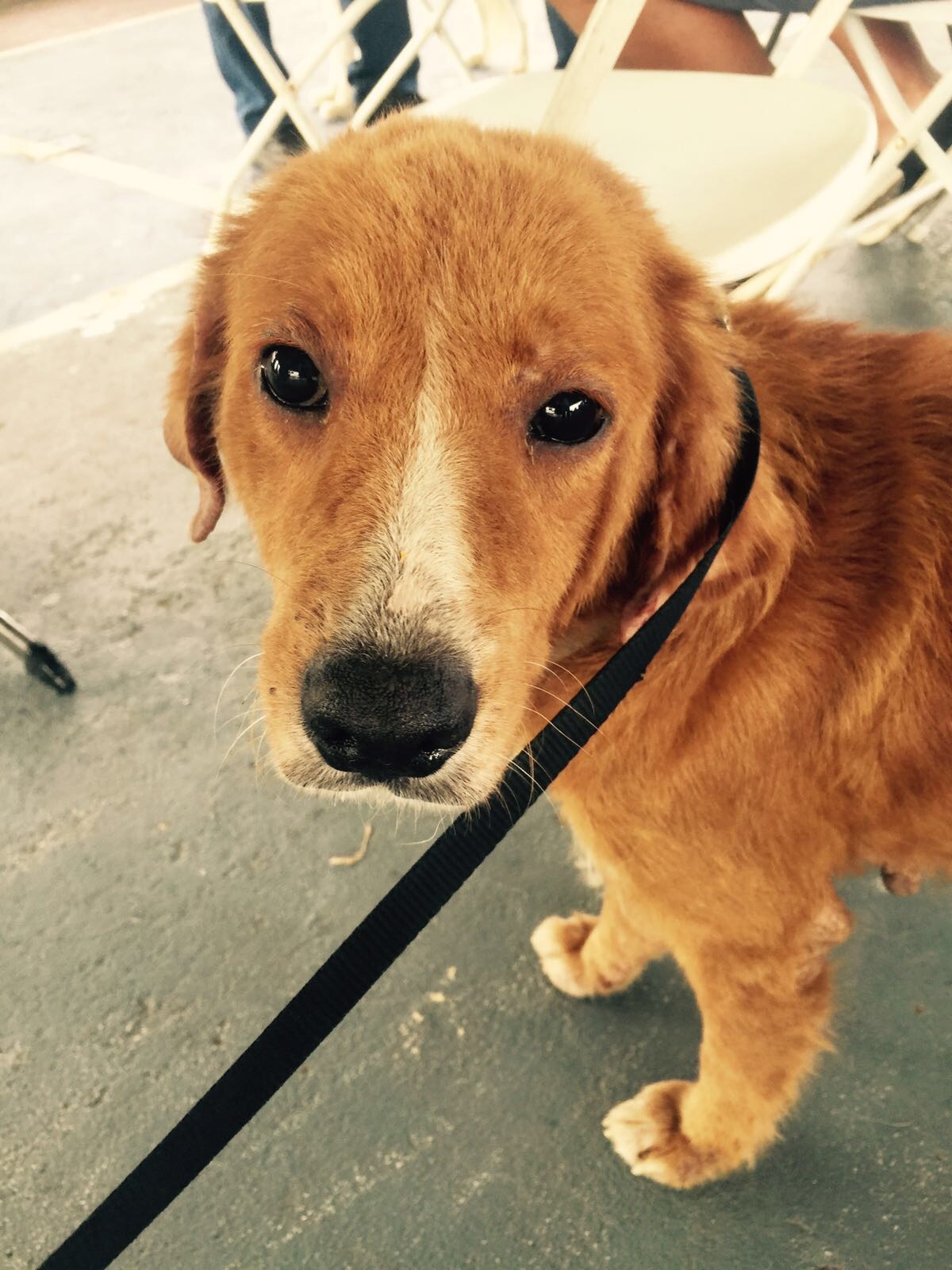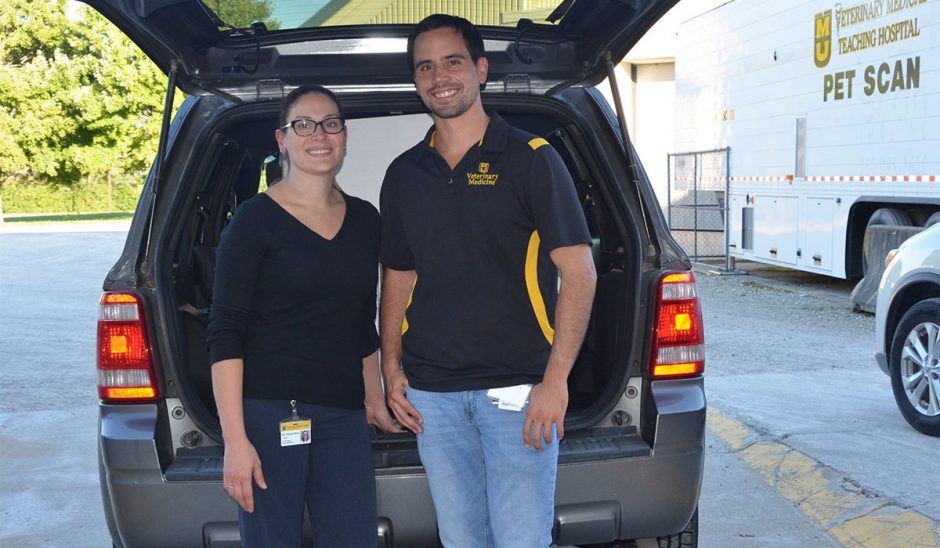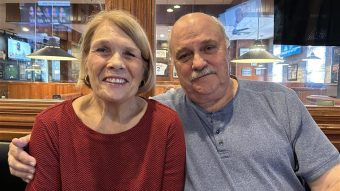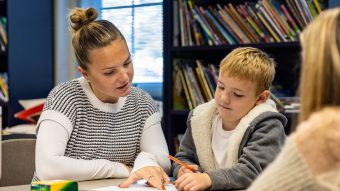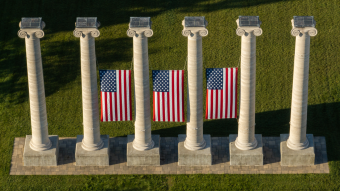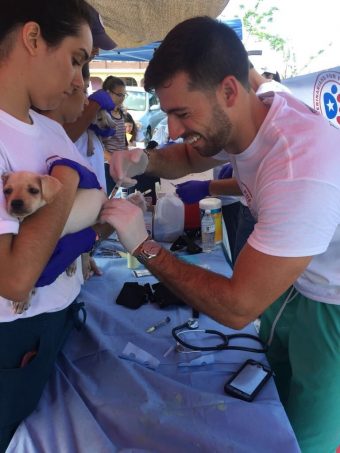
Before Hurricane Maria rolled over the island of Puerto Rico, destroying homes and cities, Willie Bidot, a resident in the MU College of Veterinary Medicine, liked to follow the same routine every morning: He would wake up at 5:30 a.m., go to the gym, and spend a few minutes on an exercise bike followed by weights. After the hurricane, Bidot still goes to the gym, but he doesn’t have time for weights anymore.
“Going to the gym has turned into me sitting on an exercise bike, talking to people on the phone from Puerto Rico,” Bidot said. “This is all that I do now, mornings and afternoons.”
Bidot, along with Aida Vientós-Plotts, a fellow resident in the College of Veterinary Medicine, are cofounders of Veterinarians for Puerto Rico, a relief effort aimed at helping a typically underserved population — animals.
“We knew that helping people was going to take precedence,” Vientós-Plotts said. “But we felt that starting something right away would ensure that when people were ready to shift their focus, we’d already be mobilized.”
Both Vientós-Plotts and Bidot grew up in Puerto Rico. They attended high schools only 20 minutes away from each other. Vientós-Plotts’ dad and Bidot’s uncle were business partners for many years, but it wasn’t until veterinary school at Tuskegee University that the two finally met and became friends. When it came time to apply for residency programs, both were matched with the University of Missouri.
Their friendship has lasted ever since. When Hurricane Maria hit Puerto Rico on September 20 and their families were unreachable, Vientós-Plotts and Bidot leaned on each other for support. By the second day, they already were discussing ways they could help.
The first order of business was to reach out to veterinary supply companies and start a group on social media to which they invited veterinary professionals on and off the island. This allowed them to organize supplies such as pet food, crates, medications and bottled water. They started scheduling events with Puerto Rican veterinarians in areas that typically were being overlooked. The animals that come to these events get a physical exam, flea and tick preventive medicine, and are tested for some infectious diseases, in addition to receiving regular vaccinations.
To date, the team has distributed 8,000 pounds of food and provided veterinary care to more than 1,500 animals since the hurricane hit.
“I think for us it was just a way to channel that feeling of powerlessness, like we’re working, we’re going to class and the world here didn’t stop,” Vientós-Plotts said. “Everything kept going and so did we, but our brains weren’t here; they were at home. In Puerto Rico, the world had stopped.”
Natural disasters sometimes point out problems in veterinary care that need to be addressed. For example, cases of leptospirosis, a zoonotic disease that affects both animals and humans, highlighted the need for vaccinations in communities affected by the hurricane.
“After the hurricane it’s been really interesting talking to veterinarians who’ve been in their communities for years,” Bidot said. “It’s been a wake-up call. We need to educate those communities.”
“We’re providing basic first aid care while also including local veterinarians,” Vientós-Plotts added. “If we establish a relationship between the members of the community and their local veterinarian these owners are more likely to seek medical care for their pets in the future. We first reached out to one veterinarian, who was more than willing to help us get started, and we are so proud to say that in the last 2 months 30 veterinarians have helped in our events. This isn’t just a post-hurricane relief effort; that’s how it was born, but that’s not the long-term goal. To put even a dent on the overpopulation would be amazing.”
With the help of Vientós-Plotts’ mother, a licensed veterinary technician, who manages an emergency veterinary hospital on the island, they have been able to hold an event nearly every weekend since the hurricane. Now that they’ve officially been recognized as a nonprofit organization by the IRS, Bidot and Vientós-Plotts want to see their efforts, which now can be supported by charitable contributions and deductions, expand further. Even with their already packed schedules, they’re committed to seeing Veterinarians for Puerto Rico grow.
For now, Bidot’s free-weight routine will need to wait a little longer.
For more information on “Veterinarians for Puerto Rico,” and to make a tax-deductible donation (which recently was incorporated as a 501(c)(3) nonprofit), visit: http://veterinariansforpr.org/how-to-help.
